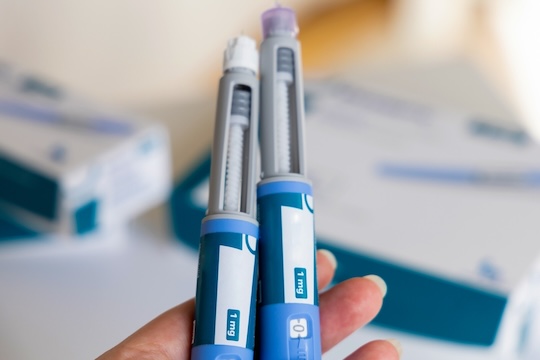| At a one-day event in Baku on Wednesday, Bloomberg Green brought together leaders in business, finance, policy and academia to discuss everything from fixing the gap in finance for the energy transition to reaching consensus on a meaningful climate deal. Here are some things we learned from our panelists: Developing countries will have nothing to show for themselves in Brazil if there isn't a strong finance deal in Baku. They need the money to pledge more ambitious emissions cuts at COP30 in Belém next year, according to Rachel Kyte, special representative for climate at the UK Department for Energy Security & Net Zero. "Everybody who's here knows that if we don't get a strong and ambitious agreement on the quantifiable goal, it makes the task of next year really difficult," she said. Musk and Trump's friendship could be good for the energy transition. "We know there's been question marks about Republicans' appetite to make EV mandates. But then you look at Elon Musk being so close to the president you wonder: Is there a narrative there that might actually benefit EVs?" said André Abadie, managing director, center for carbon transition at JPMorgan. We are eating our way to disaster. Methane is currently the worst source of climate change and we are on "a path of destruction" with the rate the world is eating beef, said Bezos Earth Fund's Steer. The fund is backing solutions that help cows emit less methane. It's also investing in AI, which Steer said could help design tastier alternative proteins. Don't bet money on a finance agreement. Climate negotiators have a 50.1% chance of getting a good deal at COP29, according to Avinash Persaud, special advisor on climate change to the president, Inter-American Development Bank. Tune in to Bloomberg TV for live interviews from Baku. Chile's Climate Minister Maisa Rojas will join at 9:15am local time. A former geophysics professor and contributor to major UN climate reports, Rojas has brought a wealth of scientific expertise to her job. She'll be followed by Ambassador Gideon Behar, Israel's special envoy for climate change and sustainability at 9:30am. It's officially Finance Day at COP on Thursday. There are a number of meetings focused on everything from disaster risk finance to carbon markets. The Presidency Pavilion (inside the blue zone) is holding an event on the role sovereign wealth funds can play in financing the energy transition. It runs from 11am-12:30pm local time. Three years after the passing of the $1.2 trillion Infrastructure Investment and Jobs Act, a new report from the advocacy group Transportation for America has yielded a surprising finding about the landmark Biden administration legislation. Rural, conservative states seem to be pushing through projects that will yield less carbon emissions in the long term compared to their more progressive urban counterparts. That's not necessarily because these red states are investing in projects typically associated with greener transportation, like public transit, bike infrastructure and sidewalks. Instead, it's about what these states aren't doing — expanding highways.  In lightly populated Montana, highway expansion is not a big driver of future emissions. Photographer: Lynn Donaldson/Bloomberg Based on projects that have been funded through the bipartisan infrastructure law so far, the report concludes that states like Montana, North Dakota and Wyoming will see a net reduction in emissions compared to the pre-IIJA baseline because they have invested big chunks of their infrastructure money toward simply fixing their existing roads with resurfacing projects. Adding new roadways, in contrast, encourages car use and car-centric land use patterns, embedding high emissions for decades. "Perhaps surprisingly, rural states with limited budgets may be more likely to see reduced emissions compared to baseline projections than urban states, as they may be forced to prioritize repair of existing assets before spending limited funds to build new roads," reads the report, which was released on Nov. 13. Read the full story on Bloomberg.com. Zero is in Baku this week, where delegates and heads of state from around the world have gathered for COP29. Akshat Rathi tells producer Mythili Rao what's in store in the two weeks ahead, and COP29 President Mukhtar Babyaev explains how Azerbaijan is trying to make the summit a success, despite concerns that NGOs and protesters will have limited access to the proceedings. Listen now, and subscribe on Apple, Spotify, or YouTube to get new episodes of Zero every Thursday. We have to say the street cats are very photogenic here in Baku. This little fella didn't need much coaxing to sit for a portrait with our photographer Hollie Adams on the Caspian Sea promenade Wednesday.  Photographer: Hollie Adams/Bloomberg | 












No comments:
Post a Comment